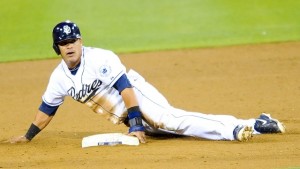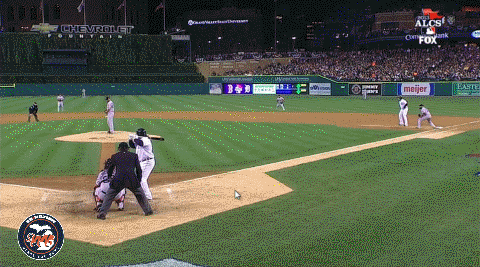When is a stolen base not credited as a stolen base? If a base runner steals a base, but the defense does not try to prevent it, the play is ruled a defensive indifference and not as a stolen base.
It is difficult to steal something that is already given to you. That is why an official scorer is not to credit a base runner with a stolen base if the defense, in fact, does not defend the steal attempt. This can be very disheartening for players who are trying to pad their stats when a game is out of hand. However, it prevents unnecessary stats and can be viewed as a way to keep the unwritten rules in check.

A defense not covering is not always the same thing as a defense on its heels
One unwritten rule is that if a team is winning by a large number of runs, players are not supposed to steal bases, go for extra base hits, and basically stop embarrassing their opponent. At the Major League level, these rules are somewhat enforced by the players themselves. Official stolen bases are definitely kept in check by the defensive indifference rule.
Defensive indifference is not something you will see called very often; the most common occurrence would be if a team hitting is down by multiple runs, and a runner on base is neither the tying or go-ahead run. Most teams will not hold such a runner on base and allow him to steal a bag. This gives up a double play opportunity to keep their defense in alignment in the field.
The debate that could be brought about is if a catcher neglects to attempt a throw in other situations. If there are runners on first and third and the first base runner steals, a catcher may fake a throw to lure the third base runner off the bag. This is obviously not an attempt to throw out the man stealing second base. However, an effort is made to defend the play as a whole, and a runner should be credited with a stolen base as such.

This was not a defensive indifference, despite no throw from the catcher
A defensive indifference ruling is really there to keep players from raising their stolen base stats unjustly. Even if a hitter hits a home run when a pitcher lobs a BP fastball right over the plate, the batter gets credit for the homer. As a base runner, the circumstances are different and thus a separate ruling was put in place.
Even if you see David Ortiz or Billy Butler stealing second base in the ninth inning of a game, they may still not have a stolen base to their credit. Unfortunately, the defensive indifference rule applies to slow runners just the same as the speedy ones. Yet, it is a ruling that keeps stat padders at bay.

I hate this when the defense does not try to throw out a batter but allows him to got to second. I believe this should go against their fielding record as I a Detroit fan and Jose Vaverde was pitching. The tigers led by 2 runs and Detroit allowed a defensive indifference so the man was on second. The batter at the plate then singled him in. Then the Tigers allowed another defensive indifference and the batter at the plate singled him in to tie the score. If the Tigers would have attempted to throw the runners out they may not have scored the 2 runs. This is why it angers me when they allow this to happen.